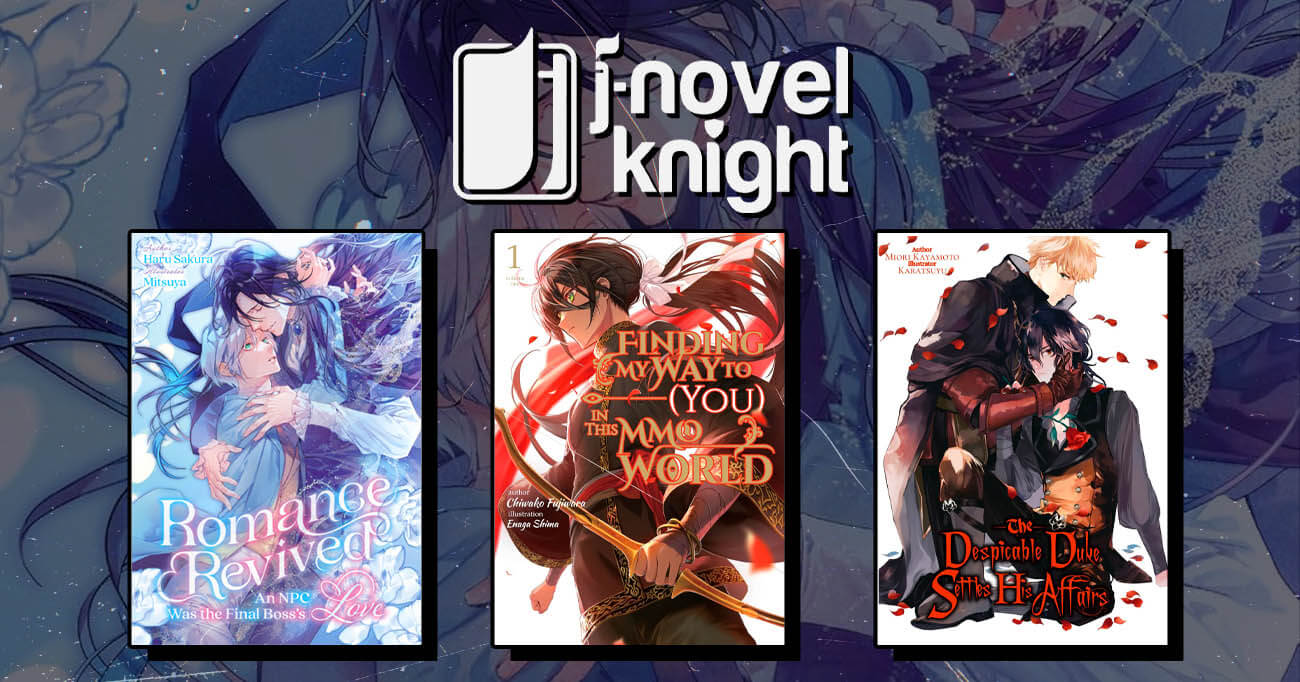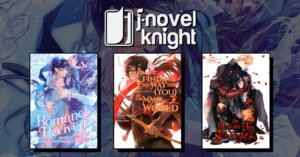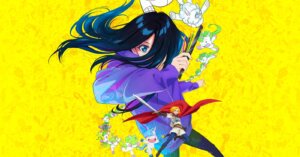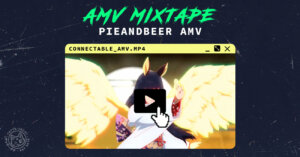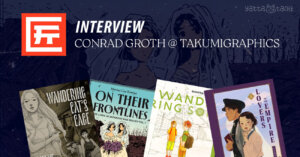As boys’ love, or BL, media has become increasingly popular abroad, publishers have formed imprints explicitly to meet this demand. J-Novel Club got into the action back in 2024 by announcing Knight, a new imprint devoted to publishing BL manga and light novels. So far, they have published three works: stand-alones Romance Revived and The Despicable Duke Settles His Affairs, as well as the light novel series Finding My Way to (You) in This MMO World.
To find out more about this new imprint, I reached out to Madison Salters, the Director of Content and Business Development at J-Novel Club. We discussed such topics as the history of the genre, the international BL market, and whether Knight might one day publish nonfiction as well as fiction.
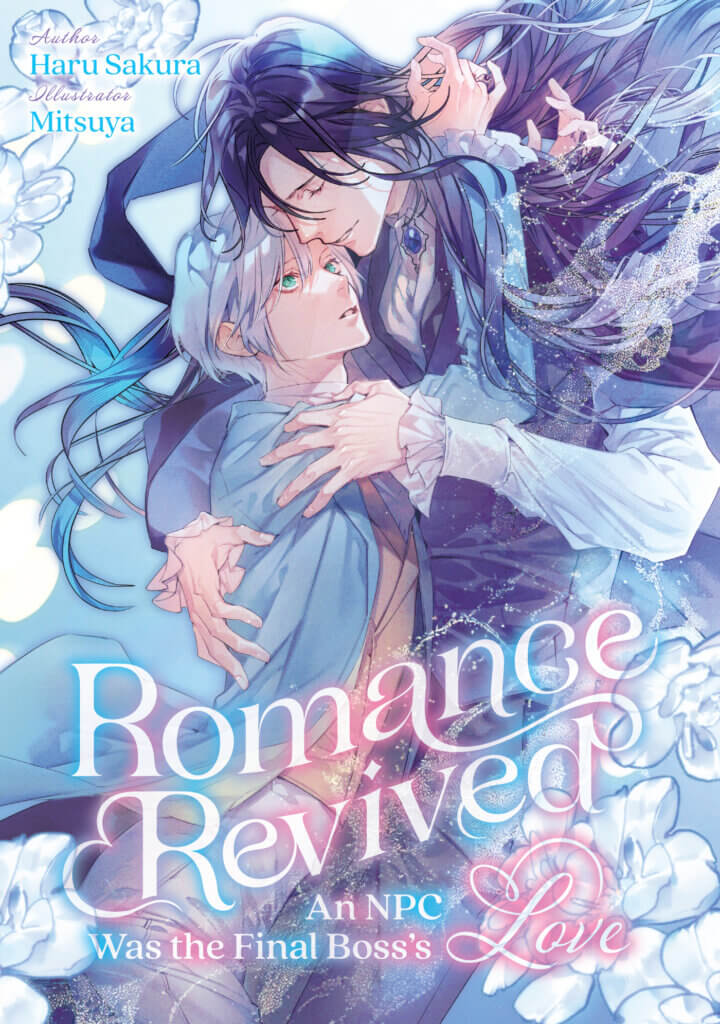
Knight Bites
ADAM WESCOTT: Before announcing which light novels you were licensing for JNC Knight, you ran a series on X called Knight Bites. What was that about?
MADISON SALTERS: We wanted to lead with education. Knight Bites was meant to teach our audience about the past and present of boys’ love so that we could build a community and listen to its needs before launching the titles themselves.
Knight’s marketing manager, Hannah Chijiwa Morgan, worked together with me on Knight Bites. Previously we had done a presentation together at MCM London, where we went through in depth how queer literature evolved over the decades into what we now know as BL.
WESCOTT: So far, JNC Knight has licensed light novels rather than manga. Even as a BL novice, I know that manga has a storied history with the genre that is well-known to English readers and speakers. Japanese BL light novels, though, are more obscure within English language scholarship. What led you to choose light novels over manga?
SALTERS: JNC does both manga and light novels, so we’ll definitely be announcing some manga as well in Knight’s first year. Stay tuned for that. But we’ve always led with light novels. They’re what we do best. We’re also owned by Kadokawa, which is famous worldwide for its light novels.
We also thought that light novels had less of a barrier to entry. We hope these books will appeal to any reader of queer literature, not just fans of BL, anime, or manga. That was very important to me. On a personal note, I was taught by the very wonderful professor Steven D. Miller at the University of Massachusetts. He did an incredible course on queer literature. I see JNC Knight as an extension of that effort.
A great team
WESCOTT: So your team was able to take what they’d learned from other projects and bring them to this one.
SALTERS: We have a great team. We worked with J Collis, the Managing Director at JNC Nina, who was launching BL titles for Europe as well. We also have a translator; I do speak Japanese, but I wanted an actual Japanese person to give us the cultural perspective Collis and myself might miss as an European or an American. We wanted to include as many perspectives as possible, while having as many people within that community and readership as we could on the team.
WESCOTT: What’s the translator’s name?
SALTERS: I’m not allowed to give names; people have to give full consent. But they’re an in-house person, not an independent translator.
WESCOTT: What consideration went into picking the first two series you licensed?
SALTERS: We’re starting with a few different companies that are storied within the industry for their great BL lineups. You’ll find out more about them within the next year and a half. That said, we felt comfortable leading with Kadokawa, because we are Kadokawa. We had many discussions with them, including some in person, about the differences between markets.
Many BL stories In Japanese are based around themes of extreme pain or being nervous to come out. We didn’t want a full lineup of just that; we wanted stories about queer love, queer joy, everyday queerness. So we looked at the menu of what they had and did our picks based on our parameters. Their licensing team helped us with that.
Legacy series
WESCOTT: Are you looking just to license recent works, or to also pick up classic series from a decade or two ago?
SALTERS: Anything is possible. That said, there can be some difficulty in localizing older works that won’t hit right anymore because of their outdated terminology. We want to stay true to the source in our translations, but we also don’t necessarily want to publish anything upsetting. So we try to keep up with what’s happening in Japan, and we’d like to keep up with the times and be as close to simulpub as we can be. We don’t always get our wish on that, though, because licensing takes time.
WESCOTT: That’s fair. I just wanted to ask because there are fans out there who love those older BL novels. Like you said, they might not have aged well, and they might be darker than what’s published now. But there is a readership.
SALTERS: We call these works “legacy series.” We do them from time to time. It’s not off the table. One of the things I love about JNC is that we are very collaborative with our fans. We chat with them and read what they send us. So if there is a legacy series that our fans are interested in, let us know and we’ll check it out.
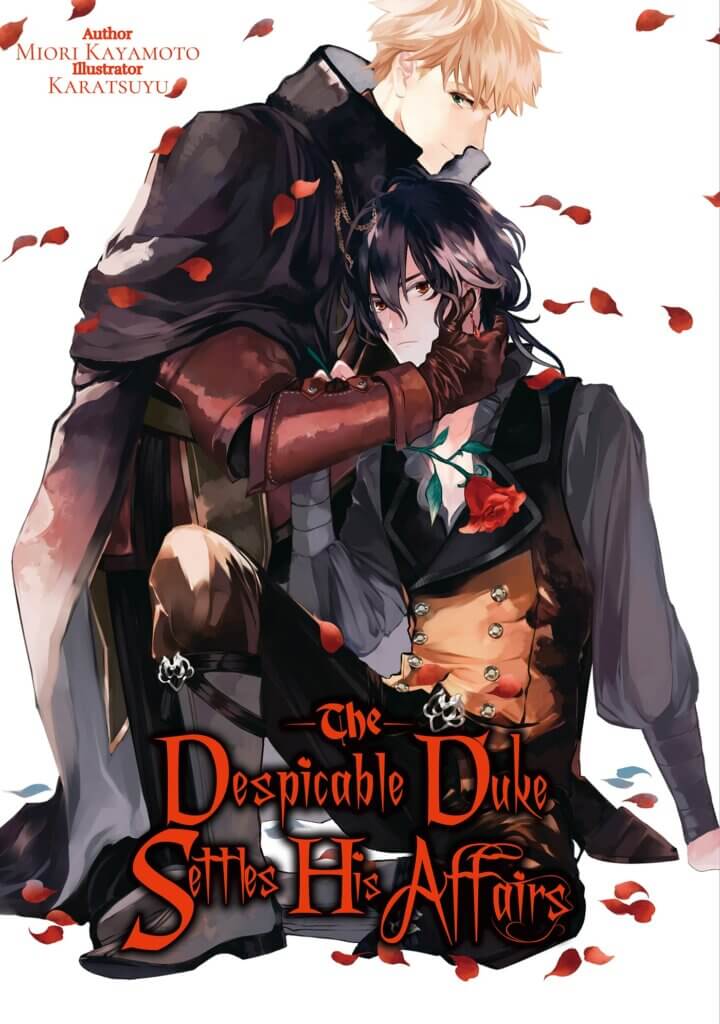
I’m the readership
WESCOTT: Two years ago, Kim Morrissy wrote about the new English translation of You Can Have My Back!, a Japanese BL fantasy light novel. Even though danmei was so popular, she said, Japanese BL fantasy was still a tough sell. Publishers had to ask, “How many people who buy light novels are in the BL fandom? Are people who buy danmei also buying light novels?” Now JNC Knight is doing that work, too; threading these demographics to create a BL imprint.
SALTERS: Kim is fantastic! She was one of our guest judges in the original English light novel contest that we hosted for the first time last year. Our second year is now coming to a culmination; we’re in final judging.
Publishers always ask, “Will a BL imprint make money?” Anything you do in publishing is a gamble. But I know that there’s a huge and untapped readership out there, because I’m the readership, and so are my friends. We’re interested, but we don’t have access. That’s an issue we’re ready to do our part to help fix. We’re excited to see the results of our first year’s launch titles and offer a lot more going forward.
WESCOTT: In an interview with TheOASG, you said that BL has a “heavy fan tradition of collection in paperback volumes.” Despite this, “the majority of our books are in digital format.” Is the possibility of print releases something that you’ve thought more about since then?
SALTERS: We are a digital-first publisher. We sometimes do print light novels, but we don’t guarantee it. That was very difficult in the past, because as I said, BL was a collector’s market. But everything’s becoming more and more digital. That’s what we saw during Covid when the supply lines were disrupted.
Digital also fits with our simulpub subscription service, where you can read chapters as soon as we translate them. You’re a part of the localization process with us. That has always been the core of JNC, especially because these are light novels we’re talking about. They’re very meaty, and longer than manga, so they take more time to localize.
This is a passion project for us
SALTERS: We decided that now was the right time to start with digital releases for BL authors. There are fantastic teams working on these books; this is a passion project for us. I was working behind the scenes in preparation for launch for two years. We had to make sure all the right pieces were in place.
WESCOTT: There’s always a danger with longer series that they might not be released in full. Is that something that you’re keeping in mind for JNC Knight?
SALTERS: We launched with two books that are done in one volume each. We have a few more of those, and then we’re focusing on one to three volume BL series with some longer ones. Manga series especially will run longer. We wanted works that were not just new but also already done, so that our readers have an ending to look forward to! I can’t tell you how many manga I’ve started where at first I’m so into it, but then it takes so long to release that I have to take a year or two break before coming back.
WESCOTT: While I can’t speak for Japan, queer media is currently under threat in the United States. As a publisher, do you believe that you have a responsibility to ensure queer stories continue to be printed and made accessible to people?
SALTERS: Yes. That’s something that we’ve discussed, if not internally, than informally as coworkers. I just married my wife a few months ago. It’s very important to me that we put out stories about different types of love and all sorts of people. Not just stories about being gay, but stories about people who are all different genders and sexualities just living life and often winning at it. Of course, there’ll be sad stories or tragic plotlines; that’s how you give them gravity. But at the end of the day, we need to keep publishing literature like BL so people can see themselves reflected through fiction that matters to them.
No promises
WESCOTT: One of my favorite J-Novel Club releases is the memoir From Truant to Anime Screenwriter by Mari Okada. Would JNC Knight be interested in publishing nonfiction as well as fiction regarding LGBTQ+ life in Japan?
SALTERS: No promises, but I did find an incredible book recently in Japanese about BL literature and queer theory, and spoke with a publisher about grabbing the rights. It’s not on the table for this year, because it’s not what our localizers are used to. But I think it would be really awesome.
WESCOTT: Will J-Novel Club might start a yuri imprint next? You already have series like Otherside Picnic and others under the Heart imprint.
SALTERS: I’m not allowed to say anything on the record, but I’d hope so personally. Let us know if that’s what you want!
WESCOTT: Keeping in mind that J-Novel Club specializes in Japanese literature, is there a possibility that the publisher expands to other languages like Thai? There are BL scenes in other countries that haven’t been touched by the English publishing landscape yet.
SALTERS: We have thought about it. But before we’d be willing to expand to other languages, we’d have to know what we have the capacity to localize correctly, quickly, and with all the right checks and balances in place. Our localization team is top notch within the industry, so we’d want our output to be good. It would be a big undertaking.
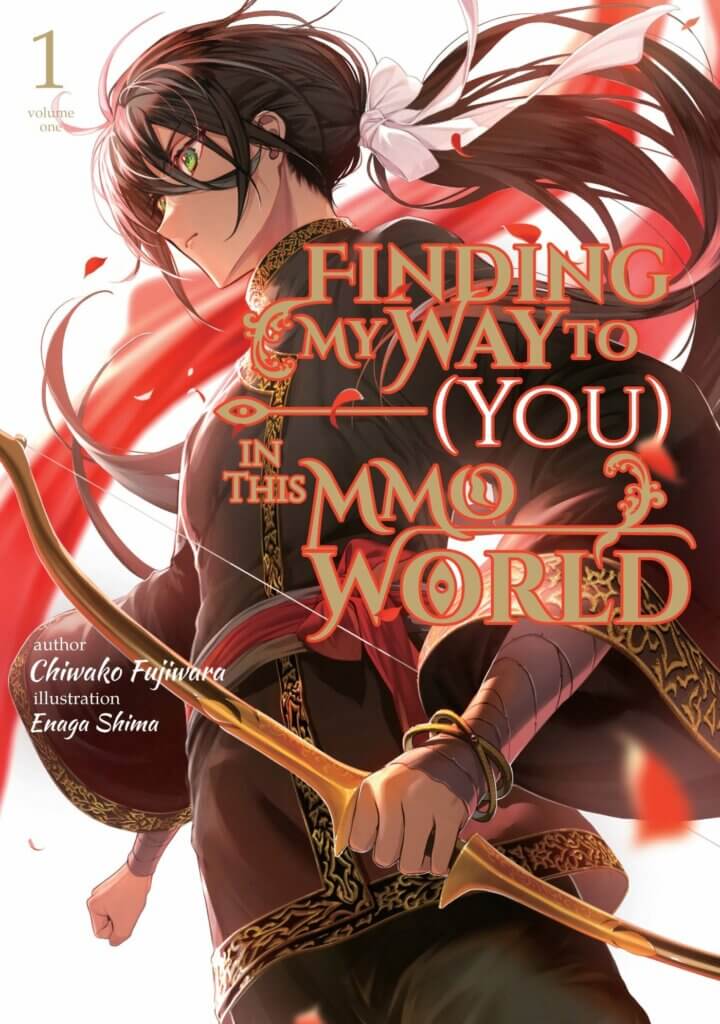
The “oldtaku” genre
WESCOTT: If you could pick any one Japanese BL light novel series and have it available in English without worrying about rights, which would you pick?
SALTERS: I can’t play favorites! But I’m enjoying the increasing popularity of the “oldtaku” genre, with fluffier older couples living life, cooking dinner, and taking care of their grown children.
WESCOTT: JNC Nina has put out a few BL titles as well. Are JNC Knight’s list of titles separate from theirs?
SALTERS: They’re entirely separate. JNC Nina handles licensing rights for German and French. Publication here and abroad is based on who has the rights in your language. There might be something available in English through Yen Press that is available in French and German via JNC Nina. Licensing is very complicated! They are also very different markets with their own preferences for types of stories and localization.
WESCOTT: What’s the greatest challenge that you faced in getting JNC Knight running?
SALTERS: I did a presentation on trends in BL literature for the English speaking market, including Britain, Australia, and Canada, to the Japanese publishers we were working with. There wasn’t much existing scholarship. Anime and manga became a phenomenon in just the past 50 years, and academia always lags a decade or so behind. So it took a lot of research and survey formation to cobble together the data. That was the biggest challenge, the number of knowledge gaps. Then we had to translate our research into Japanese.
Normalization
WESCOTT: Was there a particular series that you focused on in your graduate work?
SALTERS: I ended up with a degree in business focusing on management of US-Asian companies, with a focus on Japan. I focused on how expressions of gender lead to different shopping habits, and how changing ideas of gender was an important indicator for robust economies.
It always interested me that a common critique of BL literature was, “Isn’t this written for women by women? How could it possibly be queer?” Well, BL comes from Comiket, where doujinshi and cosplay bent expectations of what men and women could be, what they were allowed to be, and who they were in love with. BL is welcoming to all genders and all sexualities. It’s an important genre. I could be on this soapbox for a long time.
WESCOTT: The very first English language book about manga, Frederick Schodt’s Manga Manga!: The World of Japanese Comics, advances the narrative that BL manga was drawn by women for other women. The narrative persists even though there’s been further argument and discussion since then. Danmei as well, which has many female writers, has some gay male writers too. Not as many, but they’re there!
SALTERS: Danmei is even more of a protest form, because writing it can be politically very dangerous. In Japan, the popularity of BL led to…not activism, but at least normalization. Same sex marriage still isn’t legal, but there is now partnership certification in cities like Tokyo and Sapporo. If you’d like to learn more, I’d recommend watching the documentary Queer Japan.
WESCOTT: Any last words?
SALTERS: You can find us on X and Instagram at jnc_knight. Leave us your thoughts and suggestions there. Even though we’re a big company, it’s very personal to some of us. Also, please support the authors, because the best way we can do more is if you buy the books.
WESCOTT: X is a place that can be dangerous for LGBTQ+ folks, so it’s good to know that Instagram is an option.
SALTERS: We’re trying to get on Bluesky too, since we know that’s a place where our community feels safe and heard. But we don’t just want to post to post; we want to learn how a post on Bluesky works. So we’ll be there, we’re just learning it at the moment.
Article edited by: Anne Estrada
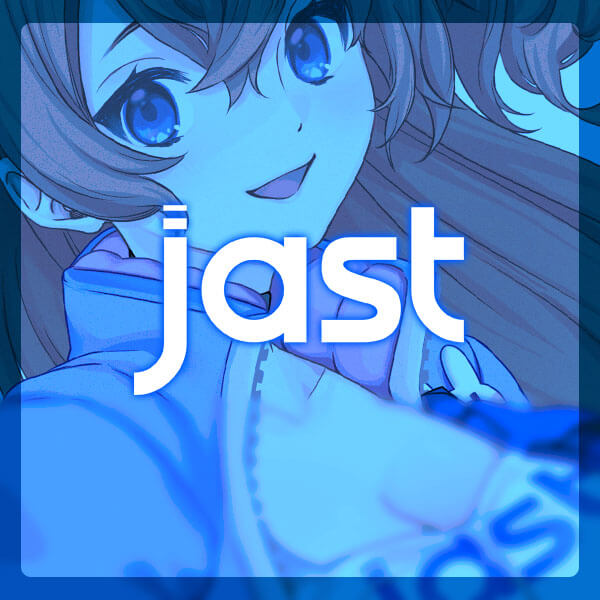
Featured Sponsor - JAST
The sweetest romance and the darkest corruption, the biggest titles and the indie darlings; for visual novels and eroge, there's nowhere better.
Big thank you to our supporters
From their continous support, we are able to pay our team for their time and hard work on the site.
We have a Thank-You page dedicated to those who help us continue the work that we’ve been doing.
See our thank you page